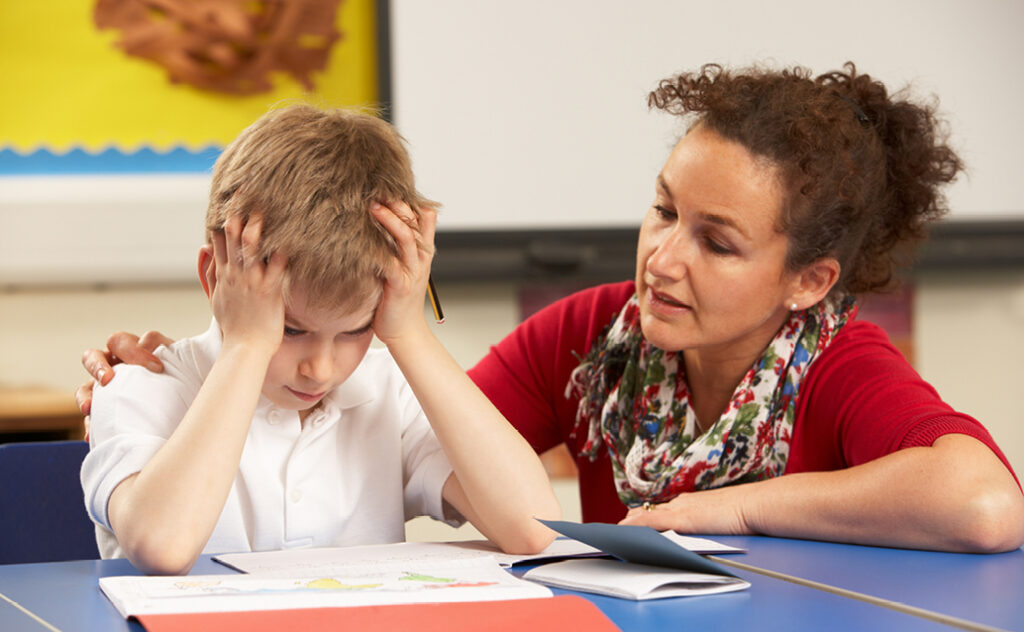
In my teaching career, I have learned that student misbehavior, or that which can disrupt or harm individuals and their learning, is a type of communication. For more than two-thirds of students in the United States, childhood trauma is at the root of these challenging behaviors. Students who act out are often victims of traumatic experiences that have rewired their young minds. It’s important for educators to understand what trauma is, what it does to the brain and how we can work to become informed educators.
What is trauma?
According to the Substance Abuse and Mental Health Services Administration (SAMHSA), there is no single cause of childhood trauma. Trauma can result from exposure to a myriad of unfavorable childhood experiences which may include exposure to violence, neglect, food insecurity, abuse of any kind, and kinship or parental custody issues. The SAMHSA reports that two-thirds of youth will experience at least one childhood trauma by the time they are 16 years old. The impact of these traumatic stressors last well beyond their formative years and can manifest as learning difficulties, mental health disorders, diabetes, heart disease, substance abuse and increased risk of involvement with the criminal justice system.
How does trauma impact the brain?
Before automobiles, cell phones and even the invention of fire, humans were primal beings who had just one thing on our daily to-do list: survival. When in danger, those primal instincts took over and the body prepared to fight or run away. When the brain is met with a traumatic situation, the brain stops reasoning and reverts back to that primal state, telling the body to do whatever necessary to stay alive. The brain also remembers those events and does its best to steer clear of the situation or prepare for the worst in the future. When the brain senses that one of those dangerous situations could be coming again, the body initiates a trauma response and prepares for battle. A student demonstrating a trauma response may become emotional, irrational, irritable, scared or withdrawn from classroom activity.
How can your role as a teacher aid recovery?
The good news is that with the correct support, intervention and therapy, the brain can heal. The most important tool for trauma care for young people is reliable, predictable relationships. One of the nation’s leaders in trauma-informed care is Cornell University. Cornell launched its CARE initiative in 2009 to benefit students in residential treatment facilities who have endured extensive childhood trauma. The CARE model stands on six main principles that are applicable to every classroom situation.
- Ensure that classroom instruction and therapies are developmentally appropriate.
- Seek involvement from family and caregivers.
- Build relationships and get to know who your students really are.
- Understand the resources you and your students have access to.
- Know your students’ trauma and what potential triggers could be.
- Set up a classroom environment that avoids possible triggers and further develops your classroom community.
It can be easy to become discouraged and even upset when a student is misbehaving and disrupting the classroom. When this happens, take a moment to consider the student’s perspective. You wouldn’t be upset with a student with a broken arm who couldn’t write or a student with a broken leg who couldn’t run. The brain should be considered in the same way even if we can’t see the trauma it has endured or what it’s choosing to do in order to survive. Think back to the six pillars of CARE for your classroom environment and create a safe, resourceful community. I promise you’ll begin to see a difference in behavior – I know I have!
Be an understanding, well-rounded educator who is able to support all the students in your classroom. Explore American College of Education’s fully online education programs.

